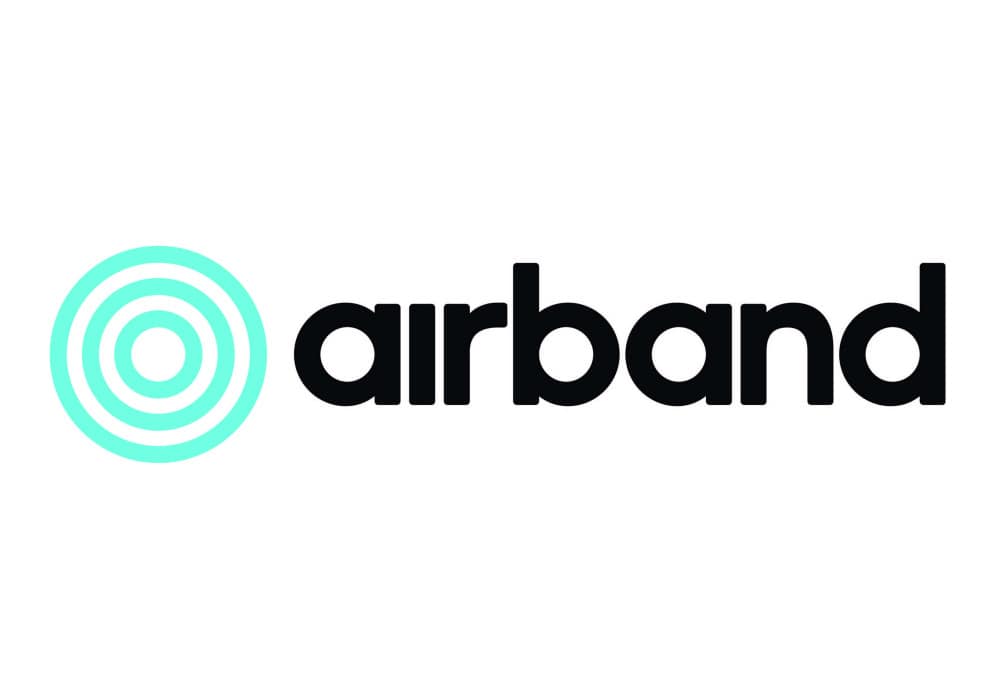Considering joining Airband Broadband?
In this article we’ve reviewed Airband, based on their speeds, value for money, customer service, and more, to see if they’re any good.
Let’s get started.
Contents
- Airband overview
- Coverage
- Speeds
- Wi-Fi router
- Phone packages
- Getting started with Airband
- Customer service
- Value for money
- Verdict: should you join Airband?
Airband overview
Airband is a broadband altnet, meaning they own and operate their own broadband infrastructure in the UK.
Currently, they offer full fibre to the premises (FTTP) broadband in large parts of the South West around Devon and Cornwall, as well as the West Midlands, Oxfordshire, and Worcestershire.
Airband also offers fixed wireless broadband in certain rural areas. Using this service, they’ll install an antenna on your house, and deliver internet service using 4G LTE signal.
At the moment, you have to sign a 24 month contract to join Airband Broadband.
Coverage
Compared to other large fibre broadband and wireless internet providers like BT and Three, Airband’s coverage is quite limited.
They focus specifically on servicing rural areas, as well as some suburban locations in certain areas.
If you can get Airband, you have probably heard from their door-to-door salespeople, or received a flyer in the post. But if you’re not sure, you can check if your postcode is covered on the Airband website.
The thing is, if you can get Airband, they might be the only provider that offers ultrafast fibre broadband where you live.
And in the areas where Airband provides fixed wireless broadband, they likely offer the fastest internet available – most addresses with this service are limited to ADSL internet, with a download speed of less than 10 Mbps.
Speeds
Airband’s FTTP service offers competitive speeds, compared to most other full fibre broadband providers.
Currently, you can get a download speed of up to 900 Mbps with Airband fibre. They also have 600 Mbps, 300 Mbps, 150 Mbps, and 40 Mbps plans.
Unfortunately, you don’t get symmetrical download and upload speeds with Airband, unlike with some other fibre broadband providers, like Hyperoptic.
Your upload speeds will be a lot slower than your downloads, most of the time (for example, you get a 200 Mbps upload on the 900 Mbps plan). However, Airband’s upload speeds are faster than what you get with Openreach full fibre providers like Plusnet, Sky, or EE.
On their fixed wireless plans, you’ll get a download speed of about 40 Mbps, although this can fluctuate a bit, depending on how many other people are online in your area, and if there is anything interfering with your 4G signal.
Essentially, Airband’s speeds are good for rural areas, but they’re not the fastest. If you can get 5G signal for example, you’ll get faster wireless speeds with the Three 5G Hub.
However, Airband is still the fastest broadband provider in many rural areas, especially in the South West.
Wi-Fi router
One area where Airband performs really well is its Wi-Fi router that they offer new customers.
When you join Airband Broadband, you’ll get a WiFi 6 router, the Linksys Velop MX4000.
Most other broadband providers still don’t offer WiFi 6 routers. With the Linksys router Airband offers, you’ll get much better Wi-Fi signal than with most other default broadband routers that other companies provide.
You also get three gigabit Ethernet ports with this router, giving you a decent amount of room to plug in games consoles or computers into the router directly, to minimise your latency.
Plus, if you buy one of Airband’s fastest fibre plans, they’ll include two WiFi 6 mesh routers, allowing you to extend your Wi-Fi signal even further, and absolutely ensure you don’t have any Wi-Fi dead spots in your house.
If you’re on one of Airband’s slower plans, you can also choose to add additional mesh units for an additional cost. This is worth doing if you have a large house, especially if you have a lot of devices connected to Wi-Fi at the same time.
Phone packages
Airband offers VoIP-based landline calling packages bundled with your internet, if you want to include a home phone service with your broadband package.
There are no anytime calling plans available, but you can buy a plan with up to 5,000 minutes per month included. Alternatively, you can pay as you go if you only make landline calls occasionally.
Airband’s phone plans are quite good, and aren’t too expensive, but it would be nice to see a plan with anytime calls included.
Getting started with Airband
Generally, installing Airband is a pretty quick process.
They’ll need to send an engineer out to your address to complete the installation, and they’ll set up the router as well. This is typical of most altnets, and generally, you can book the installation very quickly – normally within a week of placing the order.
For Airband wireless internet, the process is a bit more involved.
Once you place an order on the Airband website, they’ll need to complete a survey, to ensure you have a good line-of-sight to the nearest 4G mast.
After this is confirmed, the installation can go ahead, normally at a later date.
Overall, getting set up with Airband is normally very quick and easy, but the process is a bit more involved if you need a wireless internet connection.
Learn more about Airband wireless internet.
Customer service
Airband’s customer service is good, but it’s not perfect.
Their customers are generally very satisfied – they currently have 4.3/5 on Trustpilot, which is a lot higher than most other major broadband providers in the UK.
While the installation process is normally very smooth for most people, some customers have complained about their support team’s performance when things go wrong.
When issues occur, Airband’s customer support sometimes isn’t able to resolve these issues very quickly. Some customers have had trouble resolving problems to do with slow speeds and poor Wi-Fi performance.
Given what they charge, which we’ve discussed in more detail below, it would be nice to see slightly more consistent customer support from Airband.
Value for money
Airband’s monthly costs are generally a bit higher than what most other providers offer, on packages with similar download and upload speeds.
This is most likely because in the areas they service, Airband is often the only full fibre provider available, so they can get away with charging higher prices. They also offer a better Wi-Fi router than most other providers.
On the plus side though, there are no upfront fees to join Airband, even if you buy fixed wireless broadband and need an antenna installed on your house. This is likely because they have a 24 month minimum contract.
When it comes to fixed wireless, Airband is generally more expensive than some alternative 4G internet providers, like Three.
However, unlike other major wireless ISPs, Airband will install an antenna, ensuring you get the best possible signal even if you’re a long way away from the nearest 4G mast.
One thing that sets Airband apart from most other broadband providers is they won’t hike your prices mid-contract.
Unlike BT, Virgin Media, and Plusnet, you won’t be faced with a 3-7% increase in your prices each April.
However, when your Airband contract expires, you can expect your monthly cost to increase. It’s important to be prepared to re-contract or switch providers when this happens.
Verdict: should you join Airband?
Overall, we rate Airband 3.5 out of 5.
If Airband is available in your area, they’re definitely worth considering.
- They offer ultrafast download speeds, and have a useful fixed wireless service for those in remote areas.
- They don’t charge any setup fees.
- They have no mid-contract price rises.
- They offer a very good Wi-Fi router compared to what most other providers give you.
However, if other companies service your area, it’s worth seeing if these other providers offer lower monthly costs, or better customer service, than Airband.
Compared to other altnets like Community Fibre, Airband’s monthly costs are quite high.
Also, Airband’s 24 month minimum contract makes them a bit less flexible than some other providers that offer 12 or 18 month agreements.
About the author

Tyler is the co-founder of Broadband Savvy. He has been helping people improve their broadband connectivity since 2018 by writing about fibre broadband and mobile broadband providers, as well as creating tutorials to help people improve their broadband speeds and Wi-Fi signal.
Tyler is responsible for the majority of buyer’s guides and broadband reviews published on Broadband Savvy. He has a wealth of experience testing and reviewing different broadband tariffs, including fibre internet plans, as well as 4G and 5G broadband deals. He is responsible for testing and evaluating Wi-Fi routers, performing speed and latency tests, and comparing the value for money of different broadband providers on the market in the UK.
Before co-founding Broadband Savvy, Tyler had a long history of tinkering with computers. He built his first PC at the age of 12, and since then, he’s become obsessed with all things networking and internet-related. He’s a massive gamer, loves Rocket League, and also plays Sunday League football.






